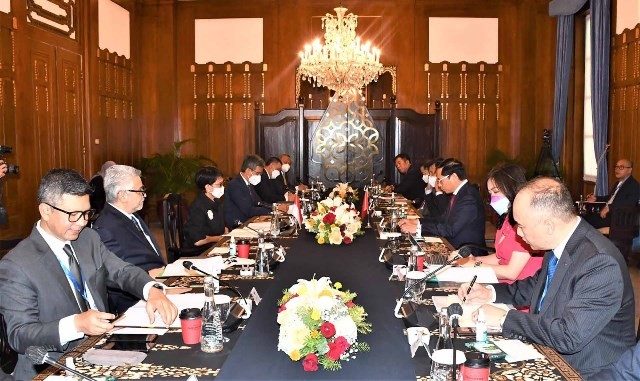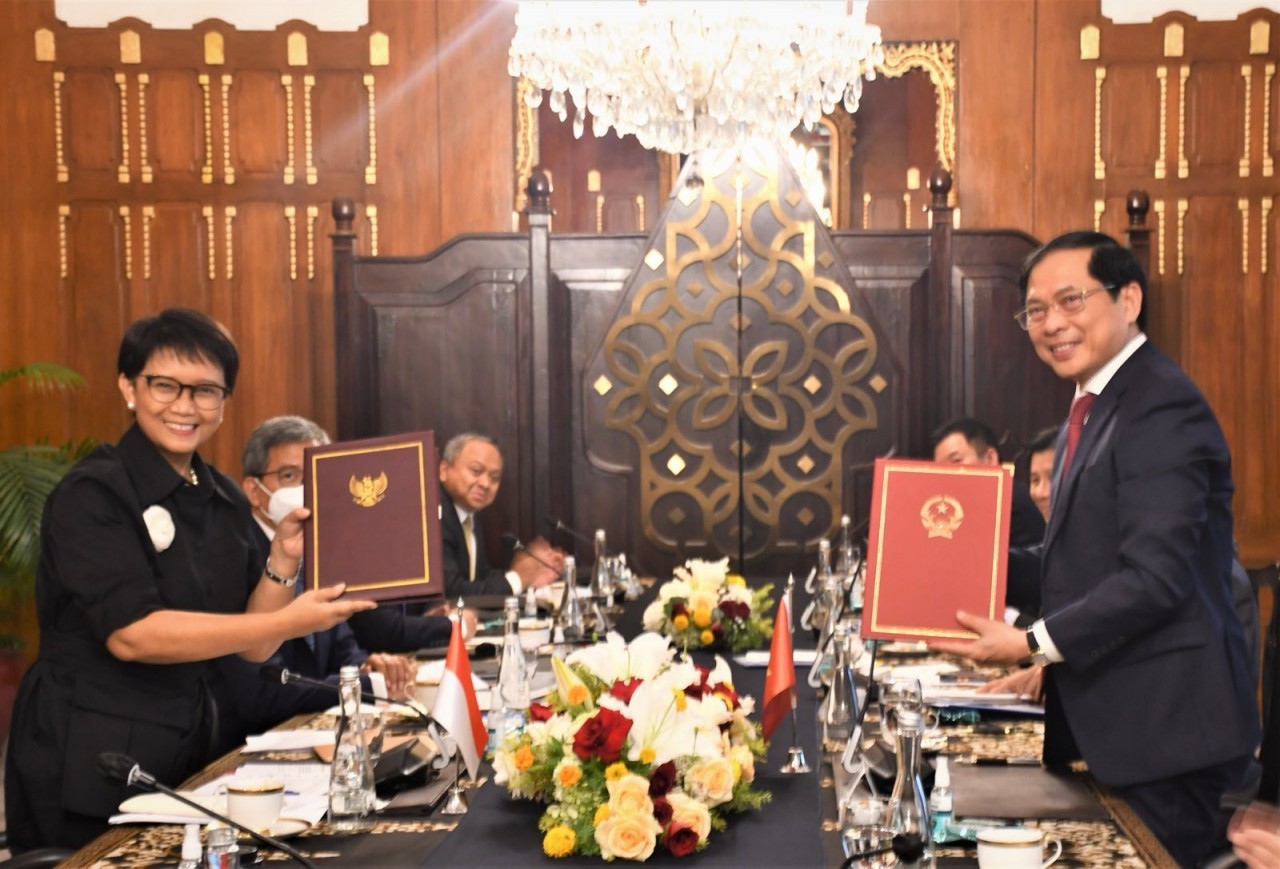
New opportunities to boost Vietnam - Indonesia trade: MOIT
Latest
 |
| Foreign Minister Bui Thanh Son and Indonesian Foreign Minister Retno Marsudi co-chaired the 4th meeting of the Vietnam-Indonesia Joint Committee for Bilateral Cooperation (JCBC-4) in Jakarta, Indonesia, on July 20, 2022. (Photo: WVR) |
According to the Asian-Africa Market Department under the Ministry of Trade and Industry, Vietnam-Indonesia trade revenue sees positive growth, from 5.5 billion USD in 2015 to 11.5 million USD in 2021.
In the first 11 months of this year, it reached 12.8 billion USD, a year-on-year increase of 25%, and is expected to reach 14 billion USD by the end of this year.
The Vietnam-Indonesia Joint Committee on economic, scientific, and technological co-operation has effectively contributed to addressing issues of the two countries’ trade relations during the past time.
Vietnamese enterprises have been actively participating in trade promotion fairs and exhibitions held in Indonesia.
Notably, Vietnamese processed and manufactured goods exported to Indonesia see the highest export value which accounts for over 60% of Vietnam's total export turnover to Indonesia.
Vietnam mainly exports to Indonesia machinery, equipment, tools, and spare parts; computers, electronic products, and components; phones and accessories; means of transport and spare parts; other common metals and products; and textiles.
Other Vietnam's exports include construction materials, especially iron, steel, and products made of iron/steel.
Regarding agricultural products, Vietnam still has advantages in exporting rice, coffee, cashew nuts, high-tech vegetables and fruits, organic vegetables, and seafood.
 |
| Foreign Minister Bui Thanh Son and Indonesian Foreign Minister Retno Marsudi exchange the Minutes of agreements of the 4th meeting of the oint Committee for Bilateral Cooperation (JCBC-4). (Photo: WVR) |
Tran Phu Lu, Vice Director of the Investment and Trade Promotion Centre of Ho Chi Minh City (ITPC), said that Indonesia is an Islamic country with the world’s largest Muslim population, and the Indonesian government is quite stringent when it comes to Halal regulations.
All food, beverages, pharmaceuticals, cosmetics, chemicals, and organic items sold in Indonesia must have Halal certification.
Indonesia spent 220 billion USD on Halal products in 2018 and the figure is expected to top 330 billion in 2025, Lu said, adding that the country is a promising market for Vietnamese exporters, especially those with products granted Halal certificates.
The market is a less demanding than the US, EU, or Japan. Meanwhile, Vietnam and Indonesia share Asian cultural similarities and close geographical distance which helps reduce transportation costs and increase the competitiveness of goods.
Moreover, they are both ASEAN countries, and thus can enjoy preferential tariffs within the bloc, Lu said.
Le Bien Cuong, Vice Head of the Asia-Africa Market Department, said that as the two countries are positive members of multilateral cooperation agreements and free trade agreements, so tariff barriers between the two countries are mostly lifted, which facilitated their trade and cooperation in developing supply chains, production chains and boosting export to the third country.
However, the structure of Vietnam and Indonesia's exports has many similarities, especially in the agricultural and fishery industry, so the exports of the two countries compete with each other, Bien said.
Moreover, Indonesia has been applying restrictive measures and barriers to Vietnamese exports.
According to the Vietnam Trade Office in Indonesia, the country implements the policy of self-reliance in food (reducing the need to import agricultural, forestry, and fishery products). Therefore, to enter Indonesia, Vietnamese products will have to compete with those from other ASEAN countries.
Indonesia is also a highly protectionist market with many non-tariff barriers, especially with frequent application of trade remedies.
To access and enter the market, Vietnamese exporters need to apply for Indonesia’s Halal certificate and the Indonesian National Standard (SNI) - the only nationally applicable standard in Indonesia and mandatory for various products.
Vietnamese enterprises are also urged to closely work with Vietnamese agencies if Indonesia launches trade remedies against their products.
By 2021, Indonesia has conducted 11 trade remedy cases against Vietnamese products.
Particularly in 2021, although Indonesia did not initiate any new cases, it issued a conclusion to impose taxes on four trade remedy cases. The items investigated by Indonesia are mainly steel products, BOPP wrapping film, cigarette rolls, EPS granules, and clothing.





















